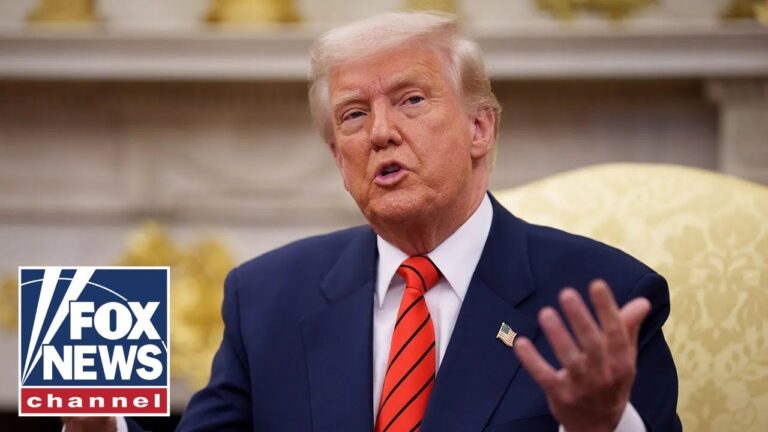Video at the bottom!
In a recent broadcast, commentator Connor Hansen expressed his frustration over the controversial pardons issued by President Trump, particularly emphasizing the case of reality TV star Todd Chrisley and his wife, Julie. Hansen reflected on the considerable outcry stemming from these decisions, highlighting claims that the couple, convicted of defrauding more than $30 million, were unfairly sentenced by what he described as a “weaponized judicial system.” He underscored that even with the pardon, he personally believes he was wrongfully convicted.
Legal expert Andrea Lewis weighed in on the situation, noting the wealth and privilege of those receiving pardons has raised eyebrows and elicited criticism that such high-profile individuals appear to evade meaningful consequences for their actions. She questioned the logic behind the administration’s claim that these convictions were overly harsh—especially amidst allegations of significant financial crimes.
The discussion further revealed a broader context, as Hansen showcased a list of recent pardons that included various notable figures, including former politicians. The legal powers of the presidency to grant pardons were acknowledged, but concerns lingered over the implications of such actions, especially for those accused of serious offenses.
Lewis elaborated on this by introducing a side conversation about different cases, including a specific instance of individuals wrongfully prosecuted for theft in Florida. She recognized that some people might genuinely deserve clemency, thus establishing a gray area in public sentiment regarding presidential pardons.
Additionally, Hansen featured a clip of Alice Marie Johnson, who discussed the criteria she considers when evaluating pardon applications, such as rehabilitation and safety risks to the community. Lewis made a notable comparison between Johnson’s standards and those of individuals like Sean Combs, suggesting that under such criteria, Combs would not qualify for a pardon due to his non-violent crime status.
Overall, the conversation encapsulated the complex and often controversial nature of pardons, invoking a debate about privilege, fairness, and the administration’s decisions in distributing them.


